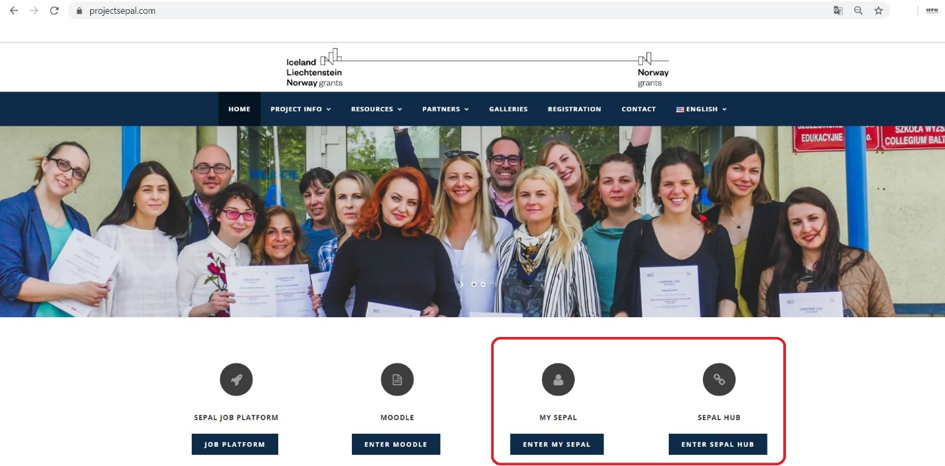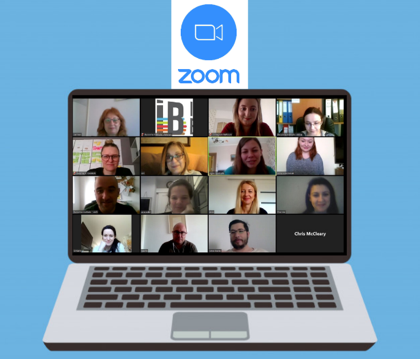In the middle of the new coronavirus pandemic, many employers attempt to limit staff exposure. Working from home represents an effective way of preventing the spread of COVID-19 by minimizing the risk of the employees coming into contact with someone carrying the disease. As the coronavirus spreads, numerous organizations are suggesting their employers to stay safe at home and to manage to do their work online by using several tools that are available on a simple search on the internet.
Considering the fact that we are going through a difficult time, we continue to believe that nothing is impossible and we will make efforts to coordinate our team to be as efficient as before or even more efficient. In order to be productive at home, we identified several requirements that are necessary to work remotely: a computer or a laptop, a phone, a good internet connection, an organized workspace, a working schedule and last but not least motivation, creativity and discipline.

As for the SEPAL team, we use the online resources that we have developed, such as SEPAL HUB dedicated to the WISERs of this project, where we continue to register and to update the profiles of the young people aged between 24 and 29 and MY SEPAL dedicated to the NEETs, where they can see their profile and their documents regarding their situation on the platform and also where we are planning to implement a ”chat” function in order to achieve an easier communication and to offer them counseling sessions when needed.

In addition, we frequently use several online instruments that are available for free on the internet in order to assure a qualitative communication between our colleagues from different countries (Romania, Spain, Greece, Lithuania, Poland). For example, our online meetings and conferences are mostly organized on the ZOOM Platform and all our partners are familiarized with it. We consider it a formal manner to communicate, being the main reason why we had started to access this Platform. We have recently organized the Steering Committee Meeting on ZOOM, being our 15th online management meeting and we will continue to organize our next meetings as planned. It was a great opportunity to discuss about the impact of COVID-19 on our activity, implicitly on the employment of the NEETs. Each partner came with technical solutions in order to continue to work and to collaborate efficiently and to maintain contact, especially with the NEETs.

To keep in touch with the young people from our platform is imperative during this period. We need to assure them that our activities will be carried on in the online environment in the next period and we will be offering them the support they need. We have to advise them that the best thing that they can do during this period is to stay at home and for example, we can help them to write a proper European CV with the help of the Europass model, to recommend them to read certain articles or books and to suggest them to attend some online free courses such as the ones offered by Google or Harvard in order to develop their skills and their knowledge in a particular domain. These activities can be accomplished through video calls using Skype, Google Hangouts or Facebook Messenger, depending on the NEET’s choice or possibility. In addition, we find accessible a few other online tools such as WhatsApp and Gmail but we use these in a more or less informal way such as short (individual or group) messages between our office colleagues or project partners.
There were mentioned above some online free courses. Within SEPAL project we intend to continue developing our own online training platform (SEPAL e-learning), using Moodle Class, one of the most popular learning systems around the world.More than this, we aim to offer to our project’s target group a training for the development of digital skills (ICT). It is needed to be mentioned that, according to DESI (The Digital Economy and Society Index) from 2019, Romania, Greece and Poland (three out of five countries from the SEPAL project) were at the bottom of the ranking of EU28, more precisely, on the 25th, 26th, and 27th places. Nowadays, it can be seen that an increased number of jobs require digital skills. More than this, when applying for a job, a proper CV, an e-mail and the use of the social media applications are also appreciated by the most of the employers. These are basic aspects that are taken into consideration, but many employers also ask the interviewees to have knowledge regarding the Office Package (Word, PowerPoint, Excel, etc.). Therefore, SEPAL project intends to give to its NEETs an opportunity to get hands-on training in the digital field. A Certificate attesting their competencies will enrich our young people’s profile and their CVs, but also will increase the productivity of certain organizations where they will be employed.
As a conclusion, we live in a rapidly changing world and we need to adapt to the age of technology that is advancing more and more with each passing day. The technology can bring advantages and disadvantages, too. During this challenging period, we consider it an advantage because it facilitates the communication between the office colleagues, the projects’ partners from all over Europe, but also between our WISERs and NEETs, which increases our productivity of our activities within which we make efforts to support it.


